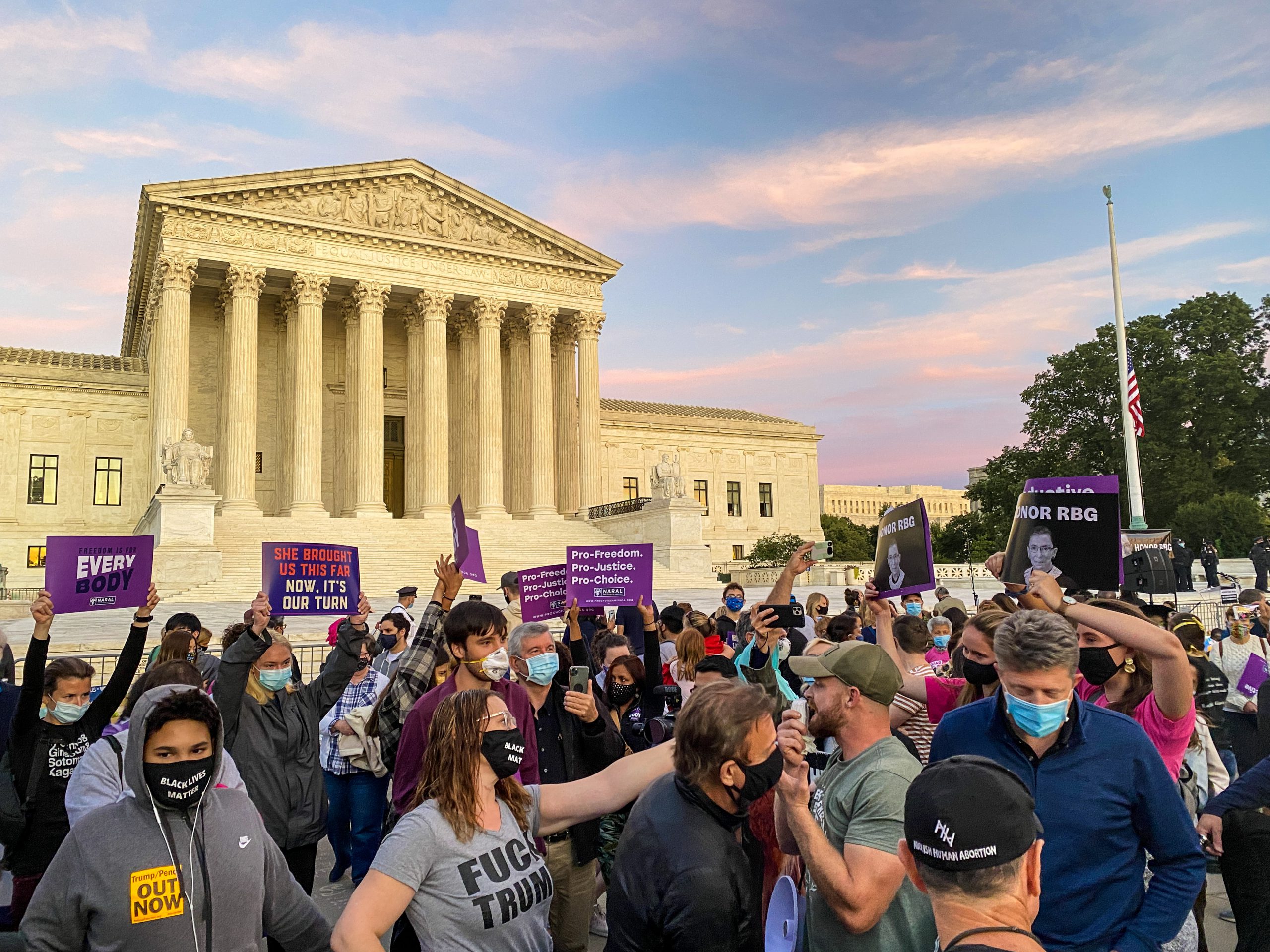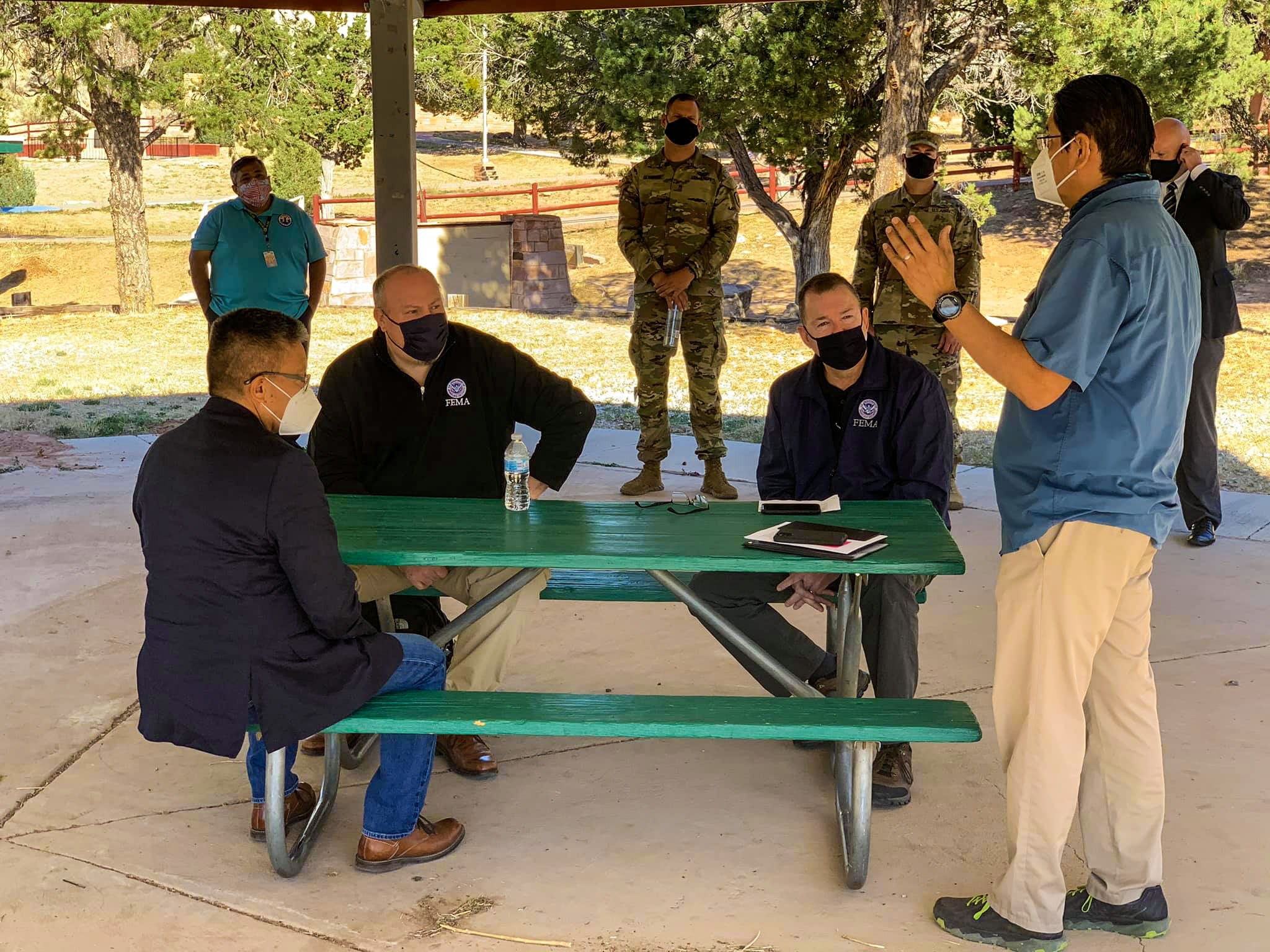“As this matter moves forward to appeal, as we anticipate, we will continue to fight for what rightfully belongs to federally-recognized tribes,” said President Jonathan Nez of the Navajo Nation, one of the plaintiffs in the case. The possibility of further appeals means tribes won’t have much flexibility in spending what’s left in the coronavirus relief fund. Through the Coronavirus Aid, Relief and Economic Security Act, also known as the CARES Act, Congress required the money to be spent by December 31. If not, the funds will revert back to the Department of the Treasury, the agency whose handling of the COVID-19 relief has been marred by repeated delays, a breach of sensitive tribal data and, of course, litigation. “This win, of course, comes at a cost to tribal governments of something very valuable: time,” said Chief Chuck Hoskin, Jr. of the Cherokee Nation, whose tribe was involved in a different CARES Act lawsuit against the Trump administration.U.S. District Court of Appeals rules in favor of Federally-recognized tribes in CARES Act litigation pic.twitter.com/ewJfg3Zswo
— Navajo Nation President Jonathan Nez (@NNPrezNez) September 25, 2020
Yet the same deadline applies to the ANCs. Should they eventually prevail, they won’t have much time to spend the money either, even though their shareholders and the communities they serve have been dealing with the coronavirus for just as long as the rest of Indian Country. “This ruling is a devastating blow to Alaska Native communities facing an alarming increase in COVID-19,” the ANCSA Regional Association and the Alaska Native Village Corporation Association said of the September 25 decision from the appeals court. “We fear this deeply flawed ruling will only make things worse by keeping critical health services and economic relief from reaching our remote communities and villages who are most at risk,” the organizations added in a statement. “As a leading voice for Alaska’s Native communities, the ANCSA Regional Association and Alaska Native Village Corporation Association will continue to fight for the federal assistance our people need to survive this pandemic,” they said.Cherokee Nation Principal Chief @ChuckHoskin_Jr issues the following statement today on the court’s opinion regarding Alaska Native Corporations non-entitlement to CARES Act funds. pic.twitter.com/Jt3dX2FVgy
— CherokeeNation (@CherokeeNation) September 25, 2020
Yet up until the government informed the D.C. Circuit of its position on Wednesday, tribes weren’t so sure their trustee would distribute the money. In fact, they became so alarmed about the COVID-19 relief disappearing in the federal bureaucracy forever that they filed an “emergency” request to ensure the $535 million stays on the table. “Plaintiffs had hoped that, in the wake of the decision, the Secretary would provide sufficient assurance of his willingness and authority to disburse the remaining Title V monies to federally recognized Indian tribes and Alaska Native villages, either before the end of the fiscal year, or after its conclusion if he or the defendant-intervenors intend to seek further review of this court’s decision,” the tribes wrote on Tuesday, referring to the section of the CARES Act pertaining to the coronavirus relief fund. “The Secretary has declined to provide that assurance,” the tribes said in their joint motion. And even though the government responded on Wednesday with a promise to pay in the event it is ordered to pay, not everyone was convinced. Attorneys for the Ute Tribe wrote separately to underscore their unwillingness to suspend their disbelief. “To avoid any potential later claims to the contrary, the Ute Tribe notes that its position is that under the CARES Act, the United States will have the duty to promptly make payment after this court issues is mandate, unless a party moves for and obtains a further injunction,” the attorneys stated.Now in spreadsheet form! Search and sort to find out how much tribal governments received from the $8 billion #CoronavirusReliefFund. #COVID19 #Coronavirus #CARESAct https://t.co/aVuyyitszv
— indianz.com (@indianz) September 25, 2020

Trump has nominated Amy Coney Barrett, a federal appeals court judge with virtually no experience in Indian law, to fill the vacancy left by Ginsburg’s passing on September 18 at the age of 87. Republicans are moving quickly to confirm the president’s pick, with confirmation hearings scheduled to begin on October 12. Through the CARES Act, Congress authorized a total of $150 billion in COVID-19 relief for tribes, states and local governments. Of the overall amount, $8 billion was set aside for tribal governments, though the law did not explicitly define the term. The CARES Act instead made reference to “Indian tribes,” as defined by the Indian Self- Determination and Education Assistance Act. The landmark law, which dates to 1975, authorizes tribal governments, as well as Alaska Native corporations, to manage federal programs as they see fit. Relying on the long-standing definition, the Department of the Treasury concluded that ANCs are entitled to shares of the $8 billion coronavirus relief fund.With their campaigns at stake, Republicans are rushing to confirm a federal judge with virtually no experience in Indian law to the nation's highest court. #AmyConeyBarrett #SupremeCourt #NativeVote #NativeVote20 #NativeVote2020https://t.co/lnovZ5SPfz
— indianz.com (@indianz) September 29, 2020

VIDEO: Native American Education – Examining Federal Programs at the U.S. Department of Education
Native America Calling: Indigenous business and the unpredictable new trade landscape
Written testimony for Senate Committee on Indian Affairs hearing on Department of Education
Native America Calling: An imbalance of deadly force by police in Canada
‘Betrayal’: Indian Country slams closure of Department of Education
Witness list for House subcommittee field hearing on Indian self-determination
Senate Committee on Indian Affairs schedules hearing on Department of Education
Cronkite News: Community pays tribute to Congressman Raúl Grijalva
Press Release: Sen. Gallego (D-Arizona) protests firings at Department of Veterans Affairs
Native America Calling: The righteous rebellion of Indigenous punk rock
NAFOA: 5 Things You Need to Know this Week (March 31, 2025)
Chuck Hoskin: Cherokee Nation celebrates Cherokee women
Native America Calling: Tribal rights, a new restaurant and more are on The Menu
Native America Calling: Tribes vie for better access to traditional plants
More Headlines